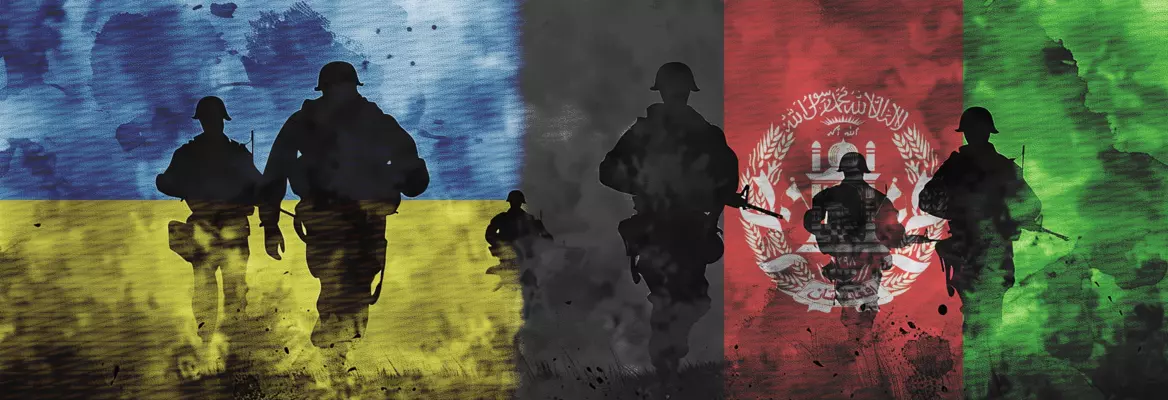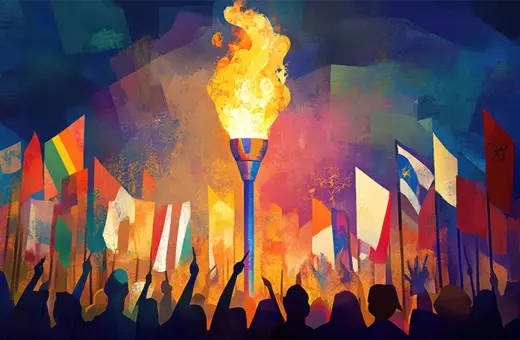Afghanistan and Ukraine are very different conflicts, but we must still learn from our previous failures. Just as we made a moral and strategic error rushing out of Afghanistan, it would be a terrible mistake to withdraw support for Ukraine while Russian aggression continues. It will make Russia Europe’s dominant military power and undermine liberal democracy. To avoid this, NATO allies need to stay the course, argues Laurie Bristow. The article is based on Bristow's experiences as Ambassador to Afghanistan, where he was the last man on the ground when the Taliban invaded. The story is told in his memoir, Kabul: Final Call.
In August 2021, the United States and its allies hastily retreated from Afghanistan. A twenty-year campaign ended with the Taliban back in control. NATO was not militarily defeated. It did not need to be. We failed through lack of will, lack of staying power, and lack of a coherent strategy. We paid a price, in terms of credibility with allies and opponents, and in terms of our national security. It is far less than the price being paid today by Afghans, particularly women and girls.
Is the west about to make the same strategic mistake in Ukraine? The long-delayed decision of the US Congress to agree the USD 61bn assistance package for Ukraine has bought some time. But there is no prospect of Putin ceasing his war of aggression, and no prospect of a negotiated peace, as long as he thinks he can achieve his aims through military force. With US presidential elections in November, and no end to the war in sight, the risk is that we are about to see a similar failure of strategy and staying power in a conflict that is much closer to home, with much bigger consequences for us.
___
With US presidential elections in November, and no end to the war in sight, the risk is that we are about to see a similar failure of strategy and staying power in a conflict that is much closer to home, with much bigger consequences for us.
___
There are important differences. NATO is not a direct participant in the war in Ukraine, and it is in everyone’s interests for this not to become a direct Russia-NATO confrontation – Russia’s included. Russia – the owner of the world’s largest nuclear arsenal and what was previously thought to be one of the world’s most capable armies – is not the Taliban. Ukraine – a European country that aspires to be a member of the EU and NATO – is very different from Afghanistan.
Yet the similarities should trouble us. Our failure in Afghanistan was not one of capability but of strategy and will. We failed for 20 years to create the conditions to safely withdraw our military support to the Afghan government. But we did so anyway, under the terms of Trump’s February 2020 Doha Agreement with the Taliban. It was clear even as the military withdrawal was still taking place that it would end badly, yet we pressed ahead, with the results that we saw unfold in the humiliating evacuation from Kabul of August 2021.
That is not an argument for an indefinite military commitment to Afghanistan, nor that the underlying problems in Afghanistan could be solved by military force alone. Because there was no viable strategy for a political resolution and therefore none for a military withdrawal, the war dragged on; politicians and voters on both sides of the Atlantic lost patience.




















Join the conversation